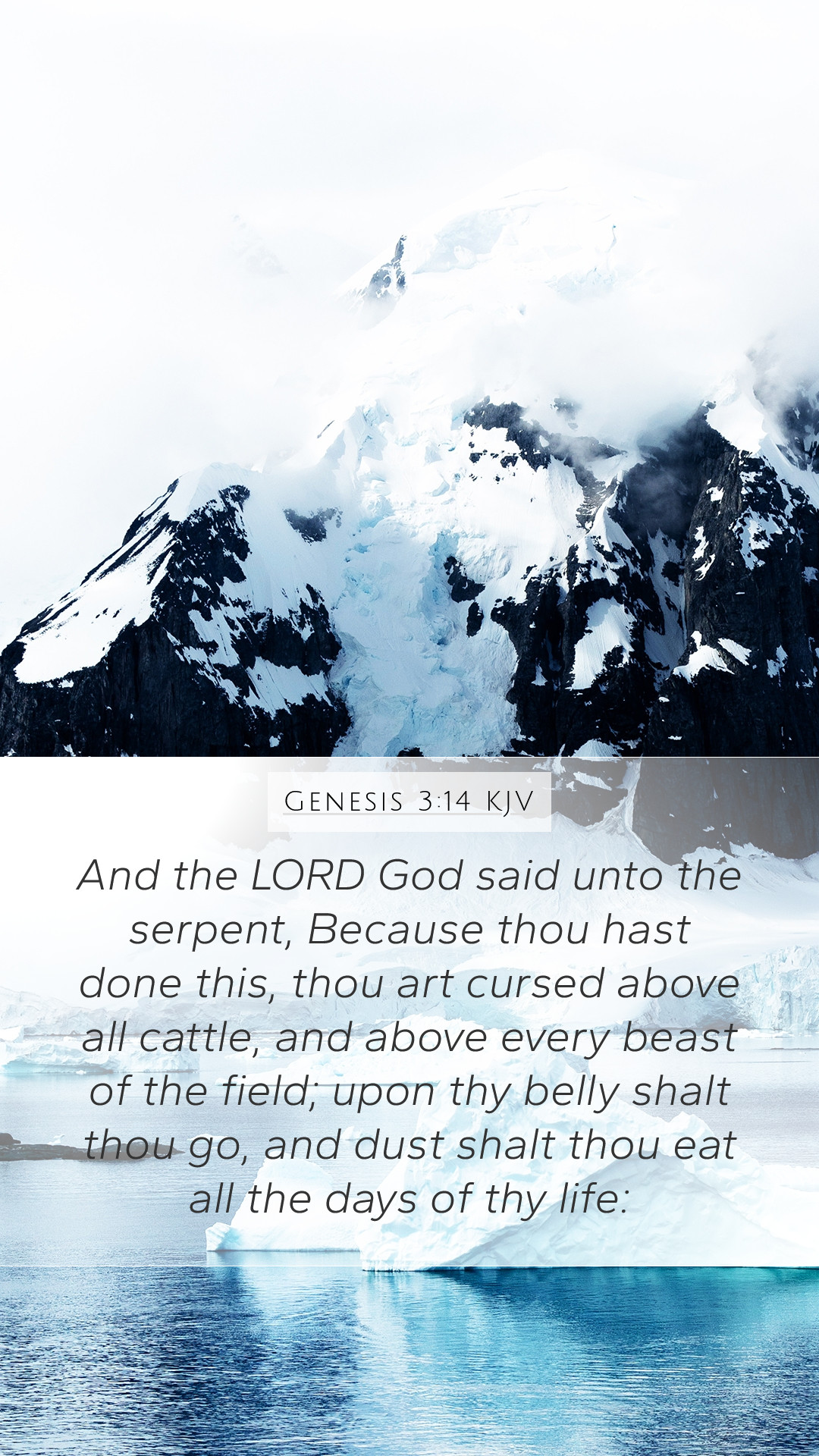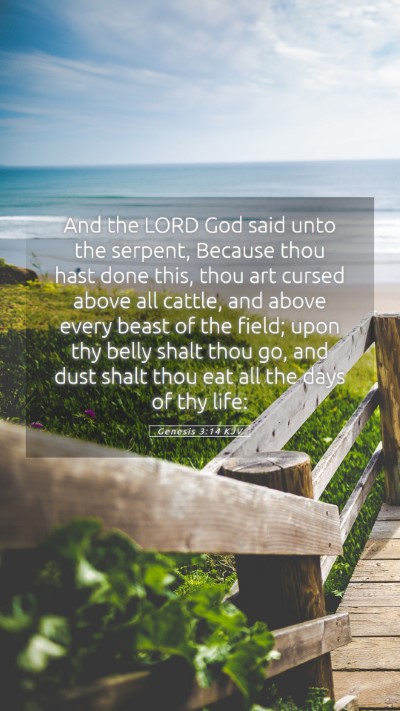Understanding Genesis 3:14
Genesis 3:14 states:
"And the Lord God said unto the serpent, Because thou hast done this, thou art cursed above all cattle, and above every beast of the field; upon thy belly shalt thou go, and dust shalt thou eat all the days of thy life." (KJV)
Overview of Genesis 3:14
Genesis 3:14 is a pivotal verse in the narrative of the Fall of Man, significant in both Bible verse meanings and its Bible verse interpretations. This verse is part of God’s judgment pronounced on the serpent, which symbolizes Satan in this context. The utterance marks a critical point in the biblical account of creation, sin, and the consequences that follow.
Commentary Insights
- Matthew Henry's Commentary
Matthew Henry highlights that the curse placed upon the serpent reflects God's justice and the seriousness of the sin of disobedience. The serpent’s humiliation—crawling on its belly and eating dust—is symbolic of its ultimate defeat and the degradation of evil. Henry emphasizes the personal nature of sin and its repercussions not just on Adam and Eve but also on creation itself.
- Albert Barnes' Notes
Albert Barnes provides an analysis of the consequences of the serpent's actions, indicating that the curse on the serpent implies the total subjugation of relying on cunning. The idea of “eating dust” signifies a lowly existence, highlighting a fallen nature that contrasts starkly with the lofty position originally held in creation. Barnes also connects this curse to the enmity between the seeding of the woman and the serpent, implying the future struggle against evil.
- Adam Clarke's Commentary
Adam Clarke points out that the description of the serpent’s punishment serves a dual purpose: to ground the narrative in reality (the serpent is now a creature of shame) and to foreshadow the coming of one who would ultimately crush the serpent's head. Clarke emphasizes the idea of an ongoing conflict, marking this moment as the beginning of humanity's battle against the serpent of old, a theme that unfolds throughout the Scriptures.
Biblical Exegesis of Genesis 3:14
Biblical exegesis of this verse unravels deeper meanings found within the immediate context of the Fall. It serves as a turning point where God lays out the consequences for each participant in the sin—Eve, Adam, and the serpent. This structured approach highlights that God does not leave sin unaddressed, offering a vital lesson on accountability.
Application and Relevance
Understanding the significance of Genesis 3:14 is essential when discussing Bible study insights and how these insights can be applied in daily life. The humility of the serpent serves as a reminder of the downfalls of pride and deceit. In our own lives, we can recognize the ongoing struggle between good and evil, making this an important verse for meditation and reflection in Bible study groups or personal Bible study lessons.
Related Bible Cross References
- Genesis 3:15 - The promise of redemption.
- Revelation 12:9 - The dragon, that serpent of old.
- Romans 16:20 - God will crush Satan under your feet.
Conclusion
Genesis 3:14 stands as a profound reminder of the consequences of disobedience. Not only does it provide answers for those asking, "What does Genesis 3:14 mean?", but it also invites readers into understanding the broader narrative of the Bible, which ultimately points toward hope through redemption. This verse exemplifies the importance of understanding Scripture in its historical context and applying its lessons to our lives today.


